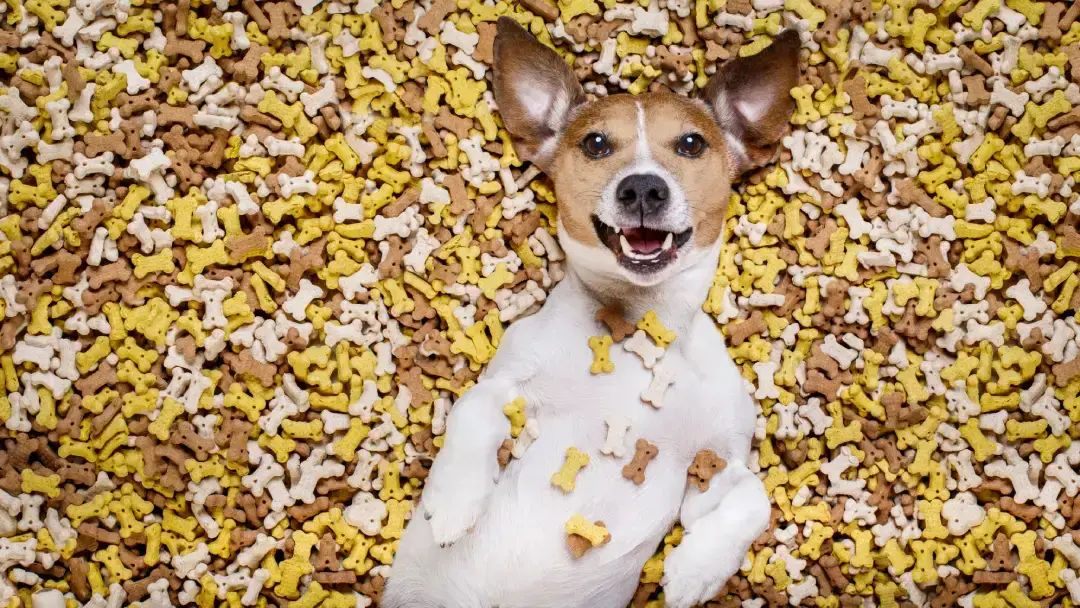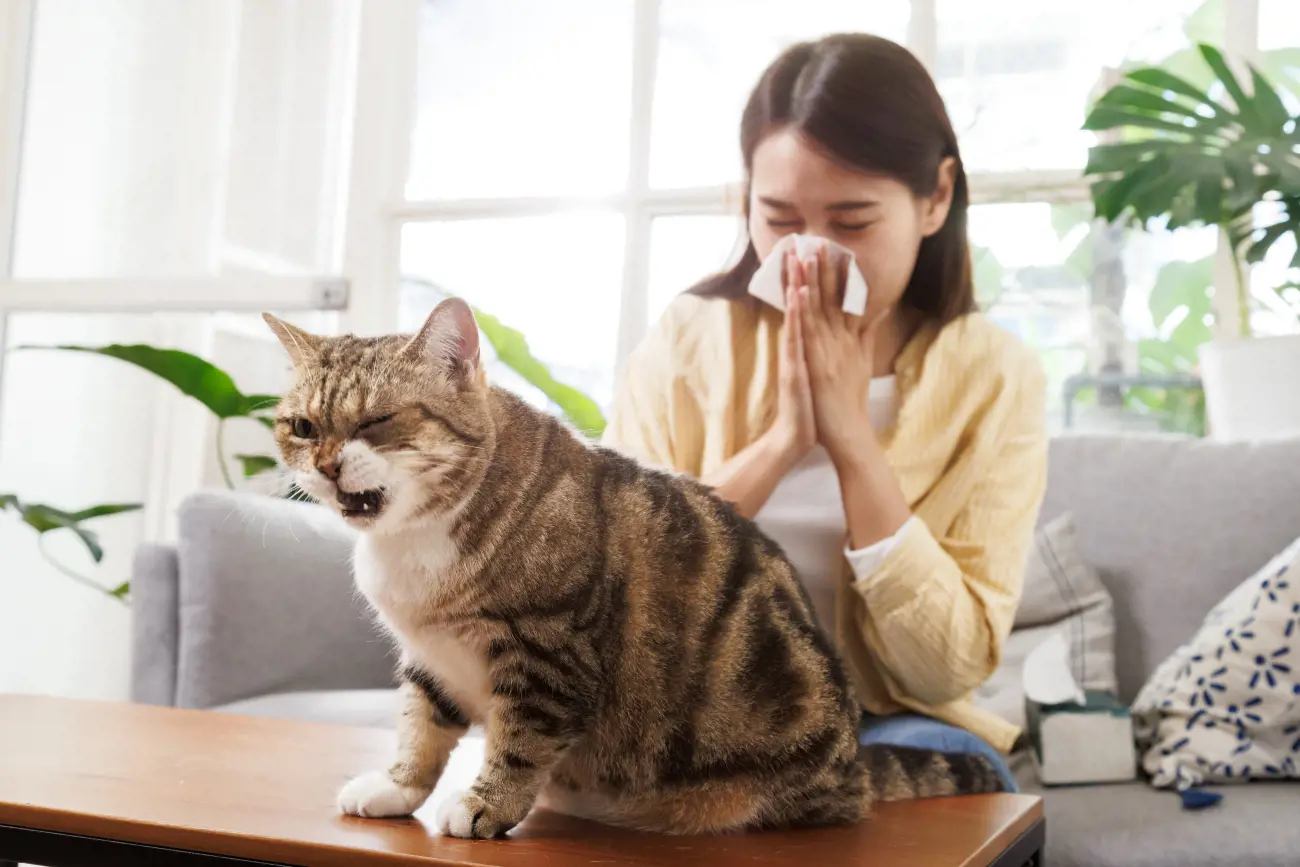How to look after your cat’s teeth
19th February, 2021

Did you know that up to 85% of cats aged three years and older have dental disease of some kind? Just like humans, cats can suffer from tartar, plaque build-up, gum disease, bad breath and abscesses.
And also like humans, if left untreated these issues can lead to more serious problems, such as infection and tooth loss. Plus, bacteria as the result of plaque build up can also cause infections in the lungs, liver, kidneys and heart.
The trouble is, unlike humans, cats are not able to tell us when they have toothache or if their teeth are causing them discomfort.
To make things worse, cats are grand masters at hiding pain (something that can be traced back to them not appearing vulnerable when faced with predators). Great when they are out in the wilds of suburbia, but not ideal when they leave their owners thinking everything is just fine.
Rather than hoping that any problems with your cat’s teeth or gums will just become obvious, it’s always better to take preventative action – otherwise you may need to claim for treatment on your cat insurance.
Tips for looking after your cat’s teeth
Being proactive in your approach to your cat’s dental health is important as it can avoid the need for surgery down the line. Here are some top tips on how you can look after your cat’s teeth and keep them looking and feeling healthy.

Start a daily dental care routine
It’s a good idea to get your cat used to having their teeth cleaned, and the younger they are the easier this will be. Start by putting some toothpaste (made specifically for cats in a flavour they will enjoy) onto your finger and rubbing it into their teeth and gums.
Once your kitty has become used to this process, you can try moving onto using a cat-specific toothbrush, which is smaller than a human toothbrush and has softer bristles. Toothbrushes that you put on your finger are another option.
Admittedly, a toothbrush and toothpaste are hardly going to act like catnip, but brushing your cat’s teeth every day is hands down the best way to avoid dental disease. Your cat may take some persuading, but stick with it and it’ll definitely pay off.
Don’t ignore smelly breath
Cats love eating fish, so it stands to reason that their breath might have a mild fishy scent. But if you find your cat’s ‘kitty breath’ has turned into plain old bad breath, this could indicate they have dental issues.
When a cat (or any animal) has bad breath and is drooling, it can mean they have gum disease and/or tooth decay. Bleeding gums on their own are nothing to worry about, but combined with bad breath and drooling, it could mean your kitty needs a dental deep clean or even a tooth removed.
Left untreated, these symptoms are only going to get worse, so make an appointment with your vet if you get a whiff of feline smelly breath.
Don’t rely on dry cat food to keep your cat’s teeth clean
Dental problems are common in cats, but they are preventable and diet can play a big part in that. For a long time it was thought that dry cat food (kibble) was enough to keep cats’ teeth clean of plaque and tartar.
The idea being that by chewing the dry food, the pieces would create an abrasive action against the teeth thus knocking plaque out of place. The only problem is, cats often don’t bother chewing their food, preferring to swallow it whole. So don’t rely solely on kibble as the answer to your cat’s dental health.

Think about what diet is best for dental health
Cats thrive on moisture-rich, grain-free food, so that means giving them a quality canned, raw and freeze-dried diet.
These foods will help them develop strong, healthy teeth and keep them in tip top condition. Supplements can also be added to a cat’s diet, such as probiotics, natural enzymes, omega-3 fatty acids and natural food-based antioxidants which can reduce inflammation and oxidative stress throughout the mouth and body.
Ask your vet for advice about the best food and supplements for overall health and whether a prescription diet specifically designed to help improve dental health is required.
Give your cat a toy to chew on
Cats are natural predators, and their natural diet of mice and other small animals meant they would chew daily on hard bones removing tartar and keeping teeth and gums healthy.
Domesticated cats don’t tend to eat many mice, so some vets recommend giving them toys to chew on instead. Any chew toy you get for your cat shouldn’t be harder than your fingernail, so always look for toys that are specifically made with cats in mind.
Consider treats that help reduce tartar
When it comes to choosing dental chews and treats for cats, some are better than others.
Avoid cheaper versions, as these will not be effective. Instead, choose products that have undergone clinical trials. But remember, dental treats alone are not enough to keep your cat’s teeth clean and healthy.
They must be used in moderation and alongside a routine of teeth brushing and a healthy diet. If your cat isn’t taking to the idea of having their teeth brushed, you could always use dental treats as a spot of encouragement.

Never ignore your cat’s dental health
It is important not to ignore tell-tale signs of feline dental concerns. Check for the warning signs – bad breath, bleeding or dark red lines along the gum, inflamed gums, ulcers, drooling, difficulty chewing food or refusal to eat, and take action.
Don’t wait until your cat shows signs of distress. Make sure you follow a daily dental care routine, give your cat a good diet, and take them to the vet for yearly checkups.
Owning a cat can give you so much – companionship, reduced stress levels and better sleep. Make sure you give back to your cat, too. Having insurance for your cat means if your puss does become unwell or needs medical treatment, you can ensure they are treated quickly and make a swift recovery.
At Purely Pets, we’ve designed 15 levels of cat insurance so you can find the right cover for your feline friend.
Get a quote today.
Policy benefits, features and discounts offered may very between insurance schemes or cover selected and are subject to underwriting criteria. Information contained within this article is accurate at the time of publishing but may be subject to change.
Helpful Pages
Recent Posts

Dog Biscuit Recipe
17/04/25
Why do Great Danes bury their heads?
12/03/25Pet Insurance Quote
- 98% claims paid *
- Claims paid directly to vets
- 24/7 vet video consultations
- Interest free monthly payments


